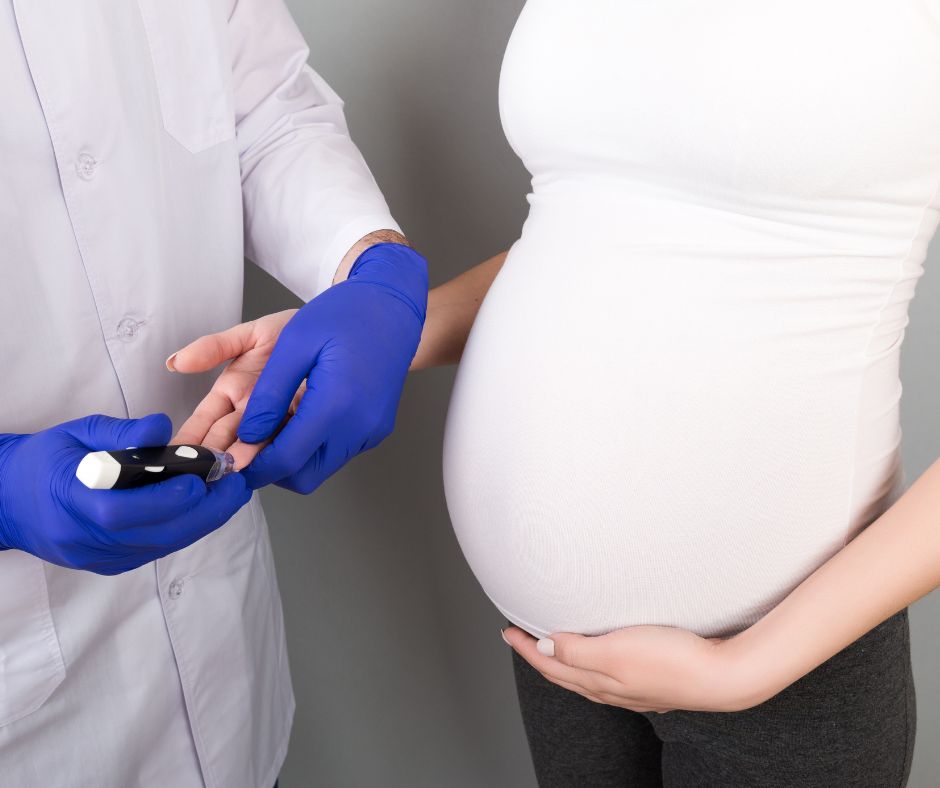“You have gestational diabetes.”
Millions of pregnant women hear those words every year. Even though nearly 10% of pregnancies in the United States are affected by gestational diabetes, the diagnosis can still come as a shock. How did this happen? What should you do? Will you rely on insulin for the rest of your life?
To clear up the confusion and help you get back to new-baby-bliss, here’s what you need to know about gestational diabetes.
What is Gestational Diabetes?
If you have diabetes, your body is unable to properly convert glucose, or blood sugar, into energy. This causes excess sugar to buildup in your blood, which can lead to a host of serious health issues. Some women develop diabetes for the first time during pregnancy; this is known as gestational diabetes.
Gestational diabetes typically develops between the 20th and 24th week of pregnancy, though it can happen at any time during gestation. Symptoms usually disappear soon after delivery, but it can affect the health of your unborn child and requires careful management during pregnancy. Gestational diabetes can also increase your risk of developing Type 2 Diabetes in the future.
What Causes Gestational Diabetes?
When you’re pregnant, your placenta releases new hormones that help your baby grow and develop, but they can also interfere with your ability to make and use insulin (the chemical that helps convert glucose into energy). This is called insulin resistance.
Normally, the body is able to increase its insulin production to counter these new hormones and the added calories you’re consuming during pregnancy. But in some pregnant women, the body is unable to produce enough insulin to overcome the excess sugar. As glucose levels rise, gestational diabetes occurs.
Symptoms of Gestational Diabetes
Gestational diabetes rarely causes noticeable symptoms, which is why routine testing is so important. If your blood sugar levels get incredibly high, you may experience increased thirst, frequent urination, blurred vision, nausea or vomiting.
Gestational diabetes can affect your unborn baby. If your blood sugar levels aren’t well controlled during your pregnancy, your baby can be born with very low glucose levels, grow larger than normal, or develop breathing problems after birth. Babies born to mothers with gestational diabetes are also more likely to become overweight or obese during childhood.
How is Gestational Diabetes Treated?
Your doctor will test you for gestational diabetes around your 24th week of pregnancy. If your test is positive, there are a number of ways the condition can be managed depending on your unique health and medical history. Most women with gestational diabetes are able to have smooth, healthy pregnancies and deliveries with very few problems.
Treatment for gestational diabetes involves managing your blood sugar levels. Common treatment options include:
- Dietary changes. Like all forms of diabetes, gestational diabetes can be controlled through a healthy, low-carb diet. Your doctor may advise you to increase your daily servings of fruits, vegetables, and whole grains, while cutting back on sweets, starches, and other problem foods.
- Exercise. You should stay active with a moderate, low-impact exercise routine to manage your weight and encourage your body’s energy production.
- Daily Testing. If you have gestational diabetes, you may need to test and monitor your blood sugar levels on a routine basis to ensure they’re in check. Consider our diabetes testing supply program to save time and money with quality testing supplies delivered right to your door.
- Insulin Injections. If your condition isn’t well controlled with lifestyle changes alone, you may need to use insulin injections to keep your blood sugar levels stable.

